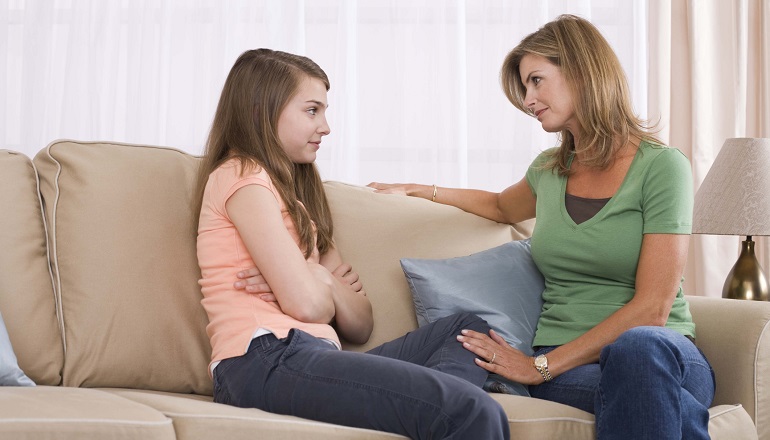When do I tell my child he or she was adopted?
Early, and often. Speaking about birth history helps all family members get used to the words and narrative, and lets your child know that he or she can always come forward with questions and emotions about birth parents. Some children will have an easier time talking about birth family history than others, but all should be given opportunities to hear, absorb, and retell their stories.
Ronny Diamond, director of the Adoption Consultation Team at Spence-Chapin, a New York agency which has been placing children since 1908, says: “The best experiences are when children say, ‘I just always knew I was adopted.’ It’s like gender: There’s no one time to inform your child that she is a girl. Most children can’t remember a time they did not know their gender.”
What do I say about why they were placed for adoption?
Children are self-centered and, despite parental assurances to the contrary, may decide that they were placed for adoption because of something they did. It’s usually not enough to assure your child that adoption is a choice made by adults, and was not prompted by anything he or she did. You should tell your child that the birth parents chose adoption or lost their parental rights because they were unable to care for any child. As they get older, it helps to explain the social context of the birth parents’ actions. Learning about conditions, such as extreme poverty, drug or alcohol addiction, or prejudice against unwed mothers, can be very important in helping children make sense of their past. Try these lines.
- “Some families are formed by birth, and some are formed by adoption.” This helps your child learn that there are different ways to create a family, and they’re all equally wonderful.
- “Your birth mother couldn’t take care of any child just then.” This statement stresses that your child did nothing “wrong” that led to the adoption. If you know your child was relinquished because of his or her gender, say: “Your birth mother couldn’t take care of any baby girl/boy just then.”
- “We will be your family, even when you’re a grownup.” Kids sometimes worry that you could decide to place them for adoption, too. Make sure you let your child know that adoption is for keeps, and that you’ll be there for her for the rest of your life.
- “I wish you’d grown inside my tummy, too, but that’s not what happened.” This last line responds to the common reaction as a child begins to understand adoption: “I wish I’d grown in your tummy.” The desire for closeness is one you can meet with empathy.
If I don’t know my child’s background, should I make something up?
Our families caution against inventing a story about your child’s past, if for no other reason than you’re likely to forget exactly what you said. Children are notoriously quick at picking up tiny discrepancies, and it will undercut their trust in you.
However, if you have no information about the circumstances of your child’s birth, don’t assume that there’s nothing to talk about. Talk about general circumstances—youth, lack of education, poverty, government policies that might have led a birth parent to adoption.
My child’s birth story is traumatic—how much should I tell?
Parents sometimes hesitate to tell children difficult details of their personal histories (conception from rape or incest, a parent in prison). But most secrets eventually come to light. And when they do, the fact that they remained secrets tells the child that he or she should feel ashamed. Adopted children need to know their entire life stories, not just the good parts.
Most parents’ first inclination is to put it off until the child is a teenager. But adolescence, hard enough for most young people, is probably the worst possible developmental stage for children to learn about difficult family history. A better time to first share difficult information is around the age of eight. This allows a few years for the child to work through the “hard stuff,” and for you to emphasize that poor choices made by one generation are not genetically predestined for repetition in the next.
You may want to consult a psychologist or social worker for guidance. You might also turn to this professional for family and individual counseling as your child deals with the information. If you have been told that your child was the product of rape, be extremely cautious about passing this along to the child, at any age. The birth mother may have said she was raped to avoid being punished for having consensual sex outside marriage. Don’t let your child think his or her birth father was a rapist unless you have absolute proof that it’s so.
What should I tell my child about the cost of his or her adoption?
When adopted children become aware of adoption’s expense (often through exaggerations, in the media, or through friends’ remarks), they may ask, “What did I cost?” Our adoptive families say the best response is first to explain that you paid for the process, not for the child, and then to give the rough final net of all fees (after any reimbursements). You can add, “If we had given birth to you, we would have paid doctors and hospitals about the same amount.”
How can I keep the adoption conversation going?
Many of our families say their children have no interest in talking about adoption. Social workers caution that the children may be clamming up because your subtle cues tell them that talking about adoption is difficult for you. You may want to prompt your child with books and movies about adoption; some of our families say that making a life book for your child is a particularly useful exercise. Whether it’s a simple scrapbook with documents and photographs, or an elaborate album, it can be an excellent way to keep your child talking.


